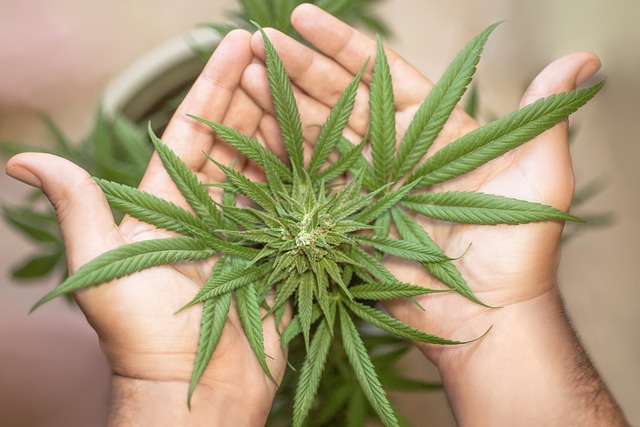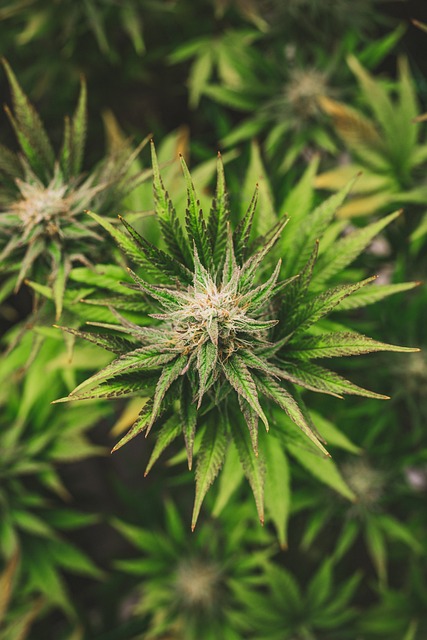In Michigan, THCA (Tetrahydrocannabinolic Acid), the non-psychoactive precursor to THC, is legally available in the form of flower following the passage of Proposal 1 in 2018. This state law legalized cannabis for medical and recreational use but set forth specific regulations that must be adhered to, with THCA flower only permitted through licensed dispensaries. The Michigan Department of Licensing and Regulatory Affairs (LARA) oversees these regulations to ensure compliance within the state's framework. Users are cautioned against public consumption and the use of cannabis near places where children might be present, as well as against driving under its influence due to severe penalties. While THCA is generally safe, it can cause side effects like those associated with THC, such as dry mouth and red eyes, and may affect individuals differently depending on their physiology, the product's potency, and ingestion method. It's particularly important for individuals with pre-existing health concerns or those on other medications to consult with a healthcare provider before using THCA flower, due to potential interactions. As the legal landscape can change, it is advisable for consumers in Michigan to stay informed, use responsibly, and be mindful of their personal reactions to optimize the benefits of THCA while complying with state laws.
Exploring the therapeutic potential of cannabinoids has led to increased interest in THCA flower, a form of raw cannabis that predates its psychoactive counterpart, THC. As interest grows, so does the need to understand its legal standing and effects, particularly in states like Michigan where laws on cannabis are evolving. This article delves into the legality of THCA flower in Michigan and examines its side effects and considerations for consumers. Navigate the complexities of THCA’s legal status and learn how to responsibly engage with this emerging market. Understanding the nuances of THCA flower consumption is crucial for those looking to explore its benefits while minimizing potential drawbacks.
- Navigating THCA Flower Legality in Michigan: Understanding the Legal Landscape
- Assessing the Side Effects and Considerations of THCA Flower Consumption
Navigating THCA Flower Legality in Michigan: Understanding the Legal Landscape

Navigating the legality of THCA flower in Michigan requires a careful understanding of both state and federal laws, as well as local ordinances that may impact its use. As of the knowledge cutoff date, THCA, or tetrahydrocannabinolic acid, the precursor to THC found in raw cannabis, is legally distinct from its psychoactive form. In Michigan, the passage of Proposal 1 in 2018 legalized the use of cannabis for both medical and recreational purposes. However, specific rules govern the possession, sale, and consumption of cannabis products, including THCA flower. For those interested in legally purchasing or using THCA flower in Michigan, it is crucial to be aware that while cannabis is legal, the state has stringent regulations on its cultivation, processing, and retail sale.
The Michigan Department of Licensing and Regulatory Affairs (LARA) oversees the cannabis industry, setting clear guidelines for compliance. THCA flower, like other cannabis products, must be obtained from a licensed dispensary to ensure legality. Consumers should also be mindful that while possession of up to 2.5 ounces of cannabis (including THCA flower) is allowed, using the substance in public or within 1,000 feet of a school, childcare facility, or another place where children may be present is prohibited. Additionally, driving under the influence of cannabis remains illegal and subject to strict penalties. It’s important for individuals to stay informed about updates to legislation, as laws can change over time. Always refer to the most current legal guidance when considering THCA flower use in Michigan.
Assessing the Side Effects and Considerations of THCA Flower Consumption

THCA, or Tetrahydrocannabinolic Acid, is a non-psychoactive cannabinoid found in raw cannabis plants, which, when heated, converts to THC, the primary psychoactive component of cannabis. As THCA flower gains popularity for its potential therapeutic benefits, it’s crucial for users to understand its side effects and considerations upon consumption. In states like Michigan, where THCA-rich products are legal, consumers have access to these compounds in various forms, including raw flowers.
While THCA is generally considered safe, some individuals may experience side effects when consuming THCA flower. These can range from mild to severe and often mimic those associated with THC, such as dry mouth, red eyes, and altered mood. Consumers new to cannabinoids or those sensitive to cannabis compounds should approach THCA consumption cautiously, starting with small doses to gauge their reaction. Additionally, it’s important to note that the effects of THCA can be influenced by individual physiology, product potency, and method of ingestion. Those with pre-existing health conditions or taking other medications should consult a healthcare provider before incorporating THCA flower into their wellness routine, as cannabinoids can interact with certain medications and exacerbate existing conditions. In Michigan, where the legal landscape is favorable for THCA consumption, users are encouraged to consume responsibly and be aware of how such products affect them personally. Understanding the nuances of THCA flower side effects and making informed decisions are key to a positive experience with this cannabinoid.
In conclusion, the exploration of THCA flower’s side effects has underscored the importance of understanding its legal status and potential impacts on health. As evidenced in discussions on THCA flower legality in Michigan, navigating these laws is crucial for consumer safety and compliance. Users must be aware that while THCA flower offers therapeutic benefits, it is not without its side effects, which can range from mild to severe. It is imperative for individuals considering THCA flower consumption to weigh these considerations carefully. The legal framework in Michigan continues to evolve, reflecting a broader societal shift towards recognizing the potential of cannabinoids and their derivatives. As such, staying informed on both the legal landscape and health-related aspects is key to making informed decisions about THCA flower use.
